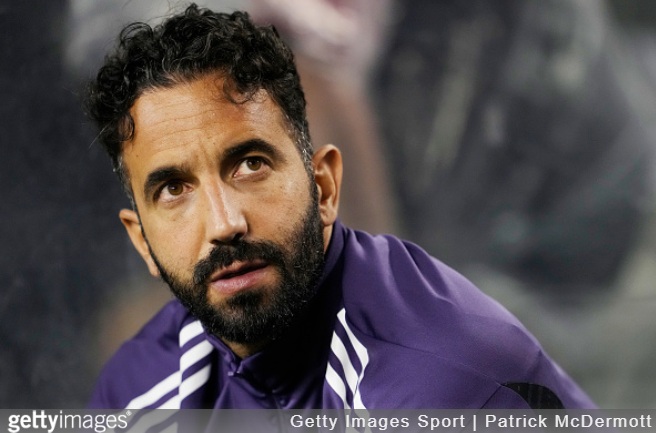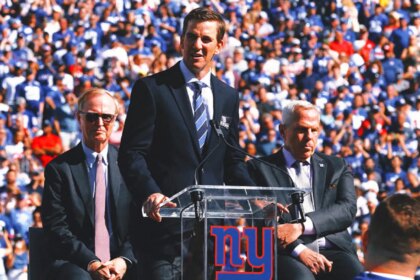The first season of Reuben Amorim at Old Trafford was tough. Appointed as the interim manager after Erik Ten Hag’s departure, he took over a team that was disoriented and lacking coherence, ultimately finishing in 15th place—the club’s worst performance in over fifty years. In a frank interview, he described the last few weeks as particularly challenging.
“The worst part,” he shared, “was attending games knowing we weren’t competitive.” The burden of stepping into a team marked by failure was heavy on his shoulders.
However, two months after securing a victory against Aston Villa on the final day of the season, Amorim speaks with newfound assurance. The US tour has fostered a sense of unity among the players, while significant behind-the-scenes changes have brought much-needed structure to a club that has struggled in recent times.
“I’m even more excited now. I’ve learned a lot, even about the little things,” Amorim said. He expresses confidence not only in his team’s capabilities but also in his personal growth as a coach, which he believes will lead to improvements this season and beyond.
Nonetheless, some players were identified as misaligned with his vision. Marcus Rashford is set to be loaned to Barcelona, while Antony, Tyrell Malacia, Jadon Sancho, and Alejandro Garnacho have been training separately from the first team and are expected to leave. Amorim holds no grudges, even towards Garnacho, despite a significant disagreement last December that didn’t ultimately affect his reintegration.
“He’s an incredibly talented player,” Amorim acknowledged, recognizing that not every relationship clicks. “Sometimes players seek a different type of leadership, which I completely understand.”
In contrast, those who remain on the team are embracing the challenges ahead. Amorim is not just focused on re-entering European competition; he also sees real potential for competing for Premier League and Champions League titles in the future. His optimism stems not just from the players’ talent but also from the cultural shifts he has initiated.
“Cultural changes are not solely about managers; they belong to the club,” he explains. “We’ve made advancements in all areas – medical, nutrition. We’ve added new chefs and established new protocols.” These protocols are intended to foster professional accountability and maturity. “These players are adults. They have families. But if you don’t train properly, I have the evidence. And I will show it to everyone.”
This level of accountability extends beyond Amorim’s authority. He has established a leadership team led by Captain Bruno Fernandez, including experienced players like Harry Maguire, Diogo Dalott, Tom Heaton, Lisandro Martinez, and Nucea Mazrawi. This structural change, which he couldn’t implement during the season, now serves as a foundational part of his long-term rebuilding strategy.
Amorim admitted he had felt constrained last year. “It was like fighting with my hands tied behind my back,” he reflected. “We’re in a stronger position now, but this is just the beginning.”
Throughout the toughest times, leaving the club never crossed his mind. “I spent five years choosing this club,” Amorim commented. “I don’t want to fail; that’s the only pressure I feel.”
His position within the club hierarchy is secure, and he shares a strong rapport with technical director Jason Wilcox and CEO Omar Berrada. His connection with Ineos figure and partial owner Jim Ratcliffe is particularly noteworthy. They often communicate via WhatsApp, including messaging GIFs, in stark contrast to the more formal tones typical in such relationships. Amorim avoids simply referring to him as a “British billionaire.”
“I always express what I need to say respectfully, but I don’t sugarcoat things,” Amorim chuckled. “And I think Jim appreciates that.”
This straightforwardness may challenge some dynamics in the locker room, but it resonates with those who manage the club. Ultimately, results are what count. Preseason victories against West Ham and Bournemouth have sparked some optimism, but the real test looms with a challenging opener against Arsenal. Amorim has a clear understanding of what his team must do to face this challenge.
“We need to inject more emotion into our team,” he asserts. “Emotions drive sacrifice, urgency, and energy. Competition helps. Look at Cunya, Mount, Bruno, Mine. There’s a real contest for positions now.”
Importantly, without European distractions, Amorim views this as a critical year. “We need to set standards now to be prepared for next season.”
He has not wasted time pondering how to bridge the gap with Manchester City and Liverpool. His focus is on repairing the issues within United. However, his long-term view remains optimistic.
“This club possesses a rich legacy, a passionate fan base. We have resources now, and there will be more in the future. With the right culture, we will reclaim our rightful place.”
For a manager who faced such a daunting start at Old Trafford, Amorim’s hopeful vision stands out. If he can match his words with actions, Manchester United’s prolonged search for stability may finally be coming to an end.
Fan Take: Amorim’s journey at United is significant for soccer fans because it represents a potential turning point for one of the sport’s most storied clubs. His focus on accountability and cultural change could not only revitalize Manchester United but may inspire other clubs facing similar challenges, marking a shift in how coaching and player dynamics are approached in modern football.



